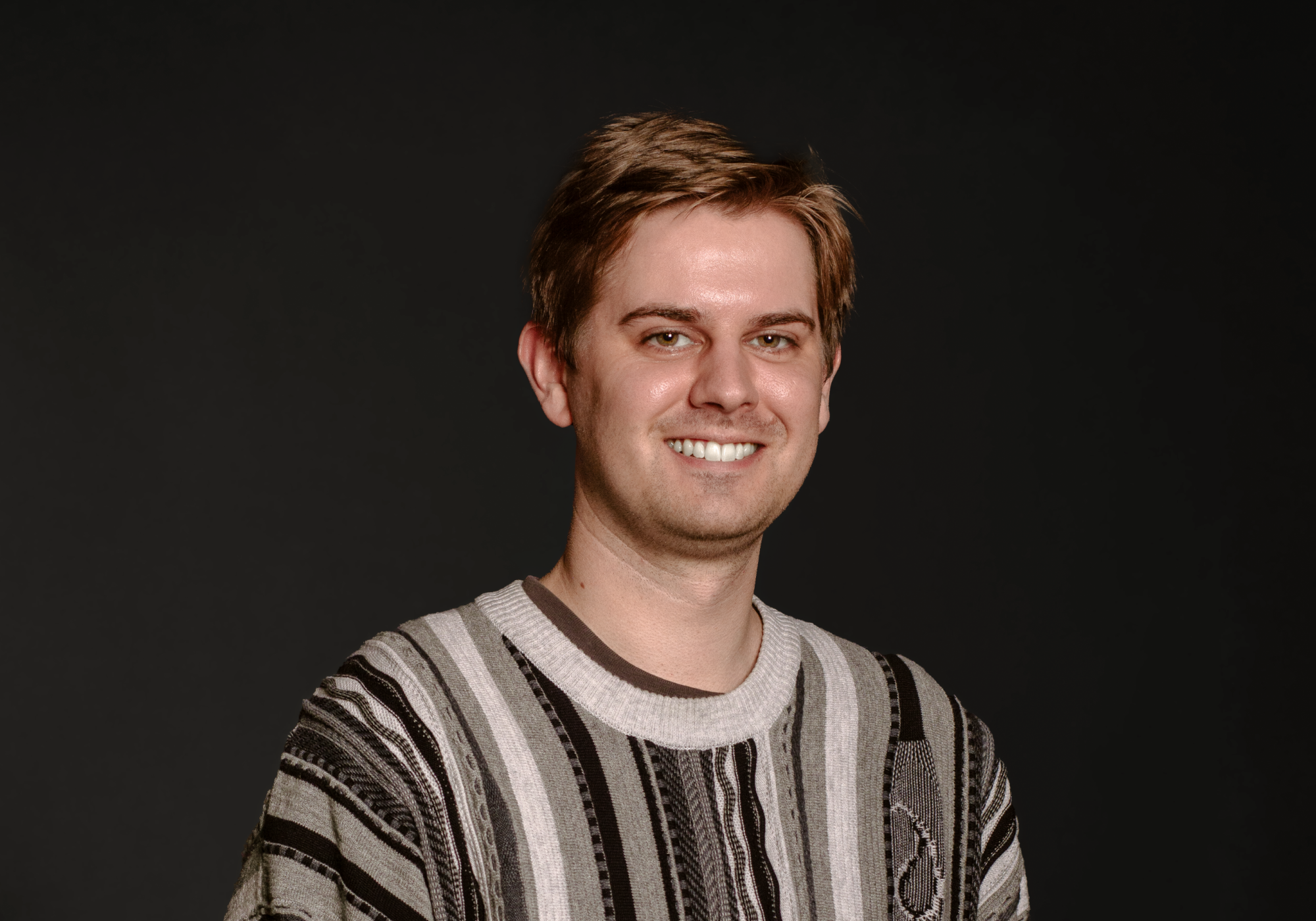Introducing Nathan Hall

Nathan is a farm boy from Gisborne, Te Tairāwhiti with serious design chops. He’s our latest addition to the Octave whānau. He’s a self-confessed chess nerd whose strategic thinking doesn’t stop with board games.
What were you doing before you joined Octave?
For the last few years, I have been at a small consultancy as a strategist and designer. This was my first job out of design school, and I got involved in various tech projects with a wide range of clients. I developed many skills that a designer mightn’t always get to learn. Things like developing business cases, analytics and data analysis, helping prepare RFPs and evaluating RFP responses. I even got to try product ownership. This experience helped me understand the moving parts of digital projects and the context for great design work. It also complemented the UX and design research work I was doing perfectly.
What interested you most about working at Octave?
To strengthen the skills in a new context. I think I bring a new perspective too. I wanted to be part of a bigger team with a broader range of skill sets.
Now that you’re here at Octave, what’s it been like?
It’s been great. I got to dive straight into the action. It’s a time of the year when there is heaps of work happening, so I can get involved in a range of client work straight off the bat. And Octave has a range of really awesome partnerships. I really like the start of projects where you’re constantly learning new things and absorbing new information. It’s also where you get to discover all the possibilities. Being new to the team, every project feels like it’s new! It’s a really supportive environment, and everyone is always willing to lend a hand. Everyone is so talented at what they do while still being open to [@ako] ako [@ako] new things and not taking everything too seriously!
I heard you’re a Chess enthusiast. What draws you to it?
Yes, I am a big-time chess nerd, whether it’s chess history, playing in tournaments or watching chess events, which for some people, can be like watching paint dry.
The thing that draws me to it is the problem-solving aspect — every game starts the same, with no luck involved — but every game you play brings up new challenges and new ideas. It’s a very absorbing game.
How does strategic thinking inform your approach to research and design?
The main thing I've learnt is there’s no point in designing something well if it doesn’t solve the problem in the first place. With my last job having more of a focus on strategy (as well as playing a lot of chess), I’ve gotten a lot better at taking a step back, engaging with the problem to be solved and making decisions based on that. This approach can often remove the ideas you love most, but it always results in a meaningful outcome, and you avoid designing a flashy solution that isn’t needed.
How would you describe your personality type?
I am an extroverted introvert. I am fairly quiet to start with. I like being around others (but not too much). I’m a “prepper” and an overthinker. I prefer to prepare ahead of time. I like to think things over and absorb info. This makes me a good learner, observant, and good at getting into the details.
What role do personas play in your approach to design?
Personas are crucial in the design process and can only be done well based on audience research. Good personas are audience understanding, grouped and articulated into decision-making tools — so if you understand personas, you understand who you are designing for and how to meet their needs. If it is too challenging to develop personas, or if the personas you have aren’t helping as decision-making tools, it usually would indicate that you don’t know your audience well enough, and more work is needed in this space.
Get in touch with our Client Director, Logan, if you want to discuss design research and strategy.
.png)
.jpg)
